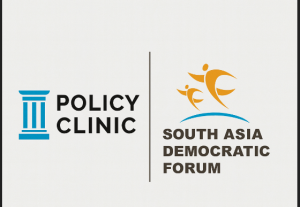
Background:
Minorities in Bangladesh (religious, ethnic, and sexual) are currently going through a challenging time, since the right-wing, religion-based political parties are on the rise. According to the latest report of the Bangladesh Hindu Buddhist Christian Unity Council, more than 2400 incidents of violence took place against the religious minorities of Bangladesh. The number of violent incidents against indigenous and sexual minorities is also on the rise, but they are mostly unreported. The state is silent, and they are denying these allegations. It is pertinent to mention that since 1947, the religious and ethnic minorities of Bangladesh have been experiencing systematic state-sponsored discrimination under both the Pakistan and Bangladesh eras. As a result of the state-sponsored discrimination, the number of religious minorities has come down to 12% from nearly 40% in 1947.
One of the main reasons for discrimination against minorities is that Islam is the state religion (Article 2A). Another reason is the absence of legal mechanisms, such as anti-discrimination laws and a minority rights commission. It may be politically challenging to remove the provision for a state religion from the constitution. However, we can advocate for the introduction of the mechanisms mentioned above, which will ensure human dignity and equality for the minorities.
| The Constitution of the People’s Republic of Bangladesh
2A. The state religion | [BISMILLAH-AR-RAHMAN-AR-RAHIM (In the name of Allah, the Beneficient, the Merciful)/ In the name of the Creator, the Merciful.] PREAMBLE We, the people of Bangladesh, having proclaimed our independence on the 26th day of March, 1971 and through [a historic struggle for national liberation], established the independent, sovereign People’s Republic of Bangladesh … bdlaws.minlaw.gov.bd |
The SADF Policy Clinic
The South Asia Democratic Forum (SADF) aims to launch a six-month pro bono initiative, in collaboration with the Policy Clinic Network, to strengthen the legal and policy framework for protecting religious and ethnic minorities in Bangladesh. Under the mentorship of Tapas Kanti Baul, Barrister-at-Law and Senior Associate of SADF, participating students will engage in rigorous policy research and advocacy development. The project will focus on drafting three key legislative instruments: the Minority Protection Act, the Minority Rights Commission Act, and the Anti-Discrimination Act. Additionally, the participants will propose the establishment of a dedicated Ministry of Minority Affairs to institutionalise minority rights protection within the government structure.
As part of the methodology, students will conduct a comprehensive review of existing literature, legal frameworks, and policy documents, complemented by one-on-one interviews with key informants and individuals who have experienced discrimination. This approach will ensure that the proposed policies and advocacy tools are grounded in lived experiences and contextual realities. The project aims to produce actionable policy recommendations and advocacy materials that can be used to engage with government stakeholders and civil society actors. Through this initiative, the Policy Clinic Network and SADF seek to empower future legal professionals while making a meaningful contribution to the promotion of inclusive governance and minority rights in Bangladesh.
FAQs
- Are you still seeking students to participate?
Yes, two other universities have shown interest. We are yet to finalise the students.
2. Will SADF or the Policy Clinic Network be directly supervising the students’ work, or is there an expectation that we contribute to this supervision?
SADF is not affiliated with any universities at this time. It will be pretty tricky for SADF to supervise the students alone. Hence, we would prefer a model where both SADF and the Universities could contribute to managing the students.
3. Would participation in this project fit with the fact that our students are involved in an extracurricular basis rather than for credit?
It will fit in with the fact that students are involved on an extracurricular basis. SADF can’t supervise students for credit.
4. What is the ideal number of students you would need?
To make the project a success, we ideally need 25-30 students (although we can accommodate more), who will be divided into groups of 5.
5. Will you have your own recruitment process, or would you accept students assigned by us?
We would appreciate it if you could send a list of preferred students from your side. If other universities also show interest and the total number of students exceeds 30, we will select them based on an interview.
6. By what date would you need the names of confirmed participants?
We will need the confirmed names by mid-October.
Contact details:
For further information, please email to – tapasbaul@baulassociates.com and info@sadf.eu or info@sadf.online
Paulo Casaca
Paulo Casaca is the Founder and Executive Director of the ‘South Asia Democratic Forum’; founder of the international co-operation association registered in Brussels ARCHumankind, ‘Alliance to Renew Co-operation among Humankind’. Founder and senior partner of the consultancy company on sustainable development registered in Brussels, Lessmeansmore, Land and Energy Sustainable Systems (2010-2020).
